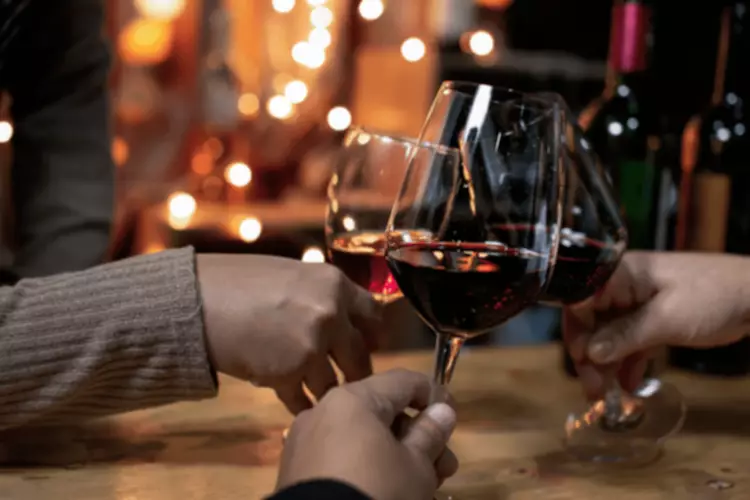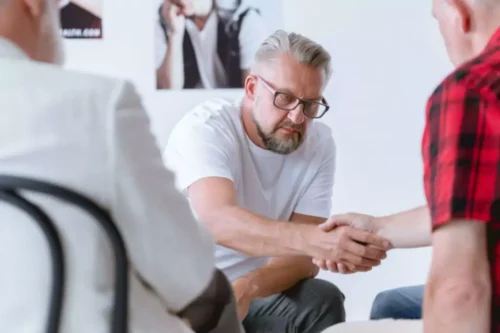What happens to your body when you stop drinking alcohol?
Usługi Google Play Aplikacje w Google Play
28 aprilie 2021
It can be helpful to make a plan ahead of time for how to handle a relapse. For example, some people choose to write a list of reasons why they want to stop drinking alcohol, and revisit the list to remind themselves after a relapse. You may want to speak with a loved one or therapist about a strategy to prevent relapses from happening.

After a month:

Here are a few steps you can take to give yourself support and guidance throughout a month without alcohol. Drinkchat is a free online chat service with trained advisors offering confidential advice. Consultant psychiatrist Dr Niall Campbell, of Priory’s Roehampton Hospital in south west London, is one of the UK’s leading alcohol addiction experts. Withdrawal is different for everyone; there really is no „normal” and it can be hard to predict an individual person’s experience. Drinking can send your hormones into a frenzy—it impacts our endocrine system, which allows our body to respond appropriately and cope with changes in our environments.
When to See a Doctor
This is of particular concern when you’re taking certain medications that also depress the brain’s function. Unhealthy alcohol use includes any alcohol use that puts your health or safety at risk or causes other alcohol-related problems. It also includes binge drinking — a pattern of drinking where a male has five or more drinks within two hours or a female has at least https://ecosoberhouse.com/ four drinks within two hours. Alcohol use disorder is a pattern of alcohol use that involves problems controlling your drinking, being preoccupied with alcohol or continuing to use alcohol even when it causes problems. This disorder also involves having to drink more to get the same effect or having withdrawal symptoms when you rapidly decrease or stop drinking.
What Causes Alcohol Withdrawal Symptoms?
It’s common to maintain a more steady diet in sobriety, instead of skipping breakfast the morning after drinking, for example. It’s likely the past few days have been challenging as your body is healing from the effects of alcohol. There may be some thoughts like “do I really have to do this for 25 more days!? ” Remember that it will get easier, and you only have to get through one day at a time. Social gatherings may seem like too much right now, and it’s okay to give yourself some extra rest and time to heal. It’s also vital to consult a medical professional before you stop drinking.
Many involve a combination of group psychotherapy (talk therapy) and medications. The main management for severe symptoms is long-acting benzodiazepines — typically IV diazepam or IV lorazepam. To get your pH balance back on track, scale back on chemical exfoliants and reach for prebiotic skincare instead.
This is exactly what one study, published in the British Medical Journal, did in 2018. Crystal Raypole has previously worked as a writer and editor for GoodTherapy. Her fields of interest include Asian languages and literature, Japanese translation, cooking, natural sciences, sex positivity, and mental health. In particular, she’s committed to helping decrease stigma around mental health issues. Family and friends can provide encouragement and support when you stop drinking.
You’ll Get Sick Less
By opening up about your relationship with alcohol, you might also encourage others to explore their own drinking habits. But maybe you’re unsure about quitting completely and don’t want to hold yourself to that goal. Knowing why you drink is essential, says Cyndi Turner, LCSW, LSATP, MAC, a Virginia therapist specializing in addiction treatment and alcohol moderation. Maybe you don’t think you depend on alcohol exactly, but you still wonder whether you might be drinking too much. “Although no amount of alcohol is recommended, even cutting back on frequency or portion size can seriously help to reduce your cancer risk,” she says. However, alcohol will always have some effect on the body, she says.

- Maybe it’s your doctor, another healthcare professional, a family member or friend, or someone in recovery.
- As you spend less time and energy managing physical symptoms, you may be wondering – what do I do with all this free time I used to spend drinking or recovering from drinking?
- ‘Eating anti-inflammatory foods such as chickpeas and blueberries can improve inflammation within the skin,’ says Dr Murad.
- Just like a broken bone or infection needs time to heal, so does an overworked liver.
- People at high risk of complications should enter a short-term in-patient detox program.
- The symptoms of alcohol withdrawal delirium include withdrawal seizures that can occur between 8 and 28 hours after your last drink.
Alcohol misuse can lead to serious health problems like liver disease and cancer. So, giving up alcohol can help you to avoid these potentially deadly diseases. Like other symptoms, the impact on mood depends on the amount and duration of your alcohol use. For light what happens when you stop drinking alcohol or moderate drinking, you might experience a more temporary, mild effect on mood. If you’ve been drinking heavily or for long periods, the impact will be more pronounced, and it will take longer for your neurotransmitter systems to restore their balance in your body.
- The most dangerous symptoms that can develop will do so as symptoms peak.
- “The one-year mark is when your overall risk of different cancers has leveled off,” says Dr. Mosquera.
The Fourth Week Without Alcohol
Low somatropin levels also lower moisture levels in skin cells, sending your complexion’s pH level off-kilter and plummeting below the level it should be, which is 5.5. ‘This growth and support hormone is released during the most restorative stage of sleep, known as REM. So if you miss out on this phase, it leads to reduced cell renewal and reduced stimulation of collagen,’ explains Dr Kevin Mun, chief scientific officer and co-founder of Venn Skincare. ‘When the skin follicles become blocked with skin cells and oil, oil starts to build up behind this blockage, resulting in the subsequent development of spots’, says Dr Hextall. After contemplating your future with alcohol, you might also experience stronger than usual alcohol cravings.
